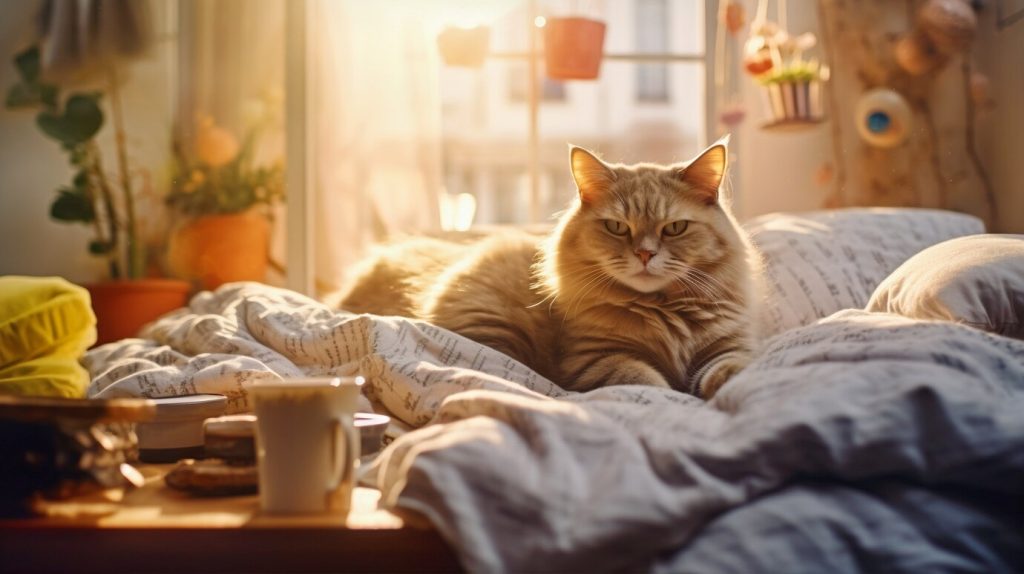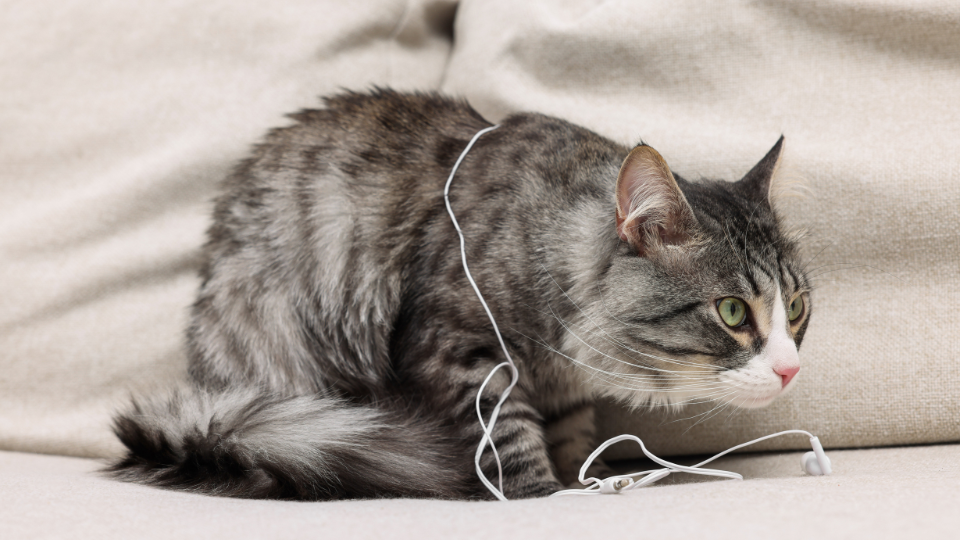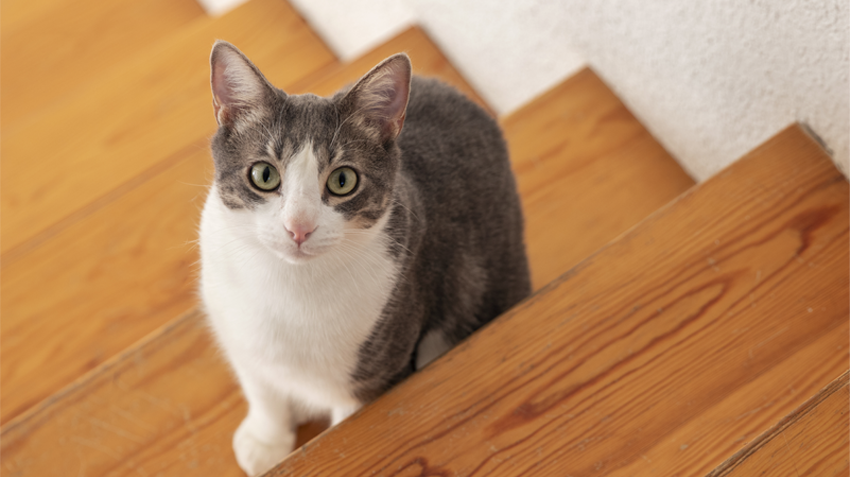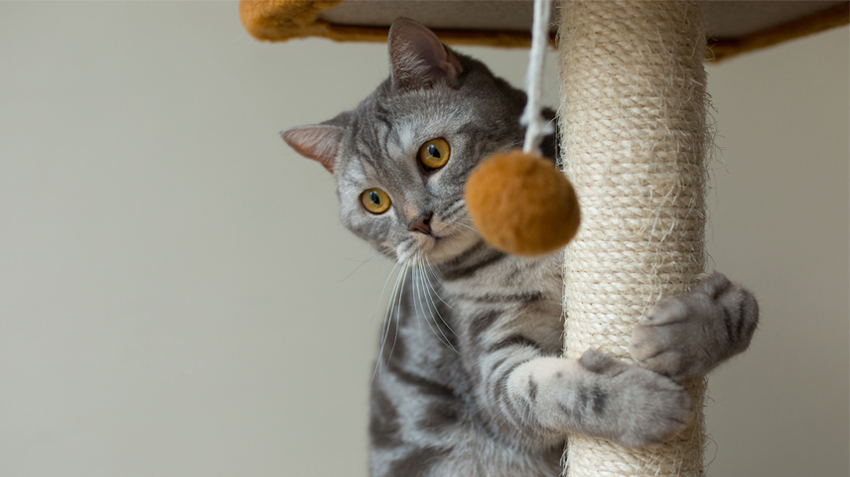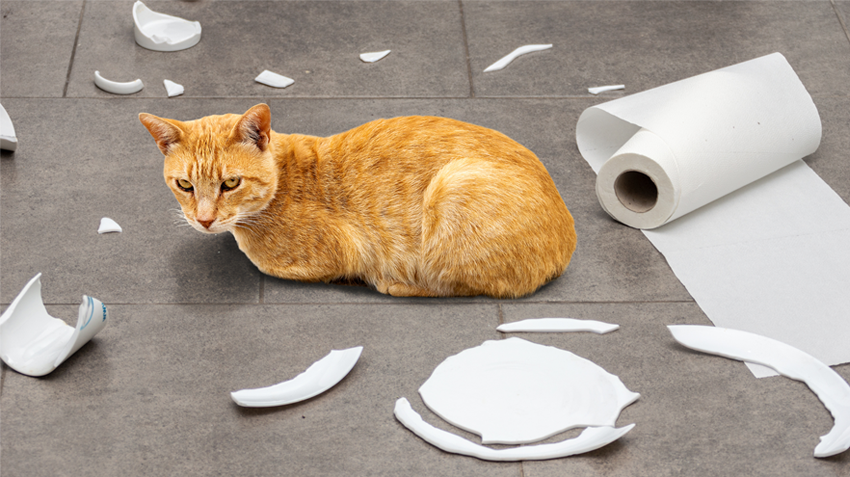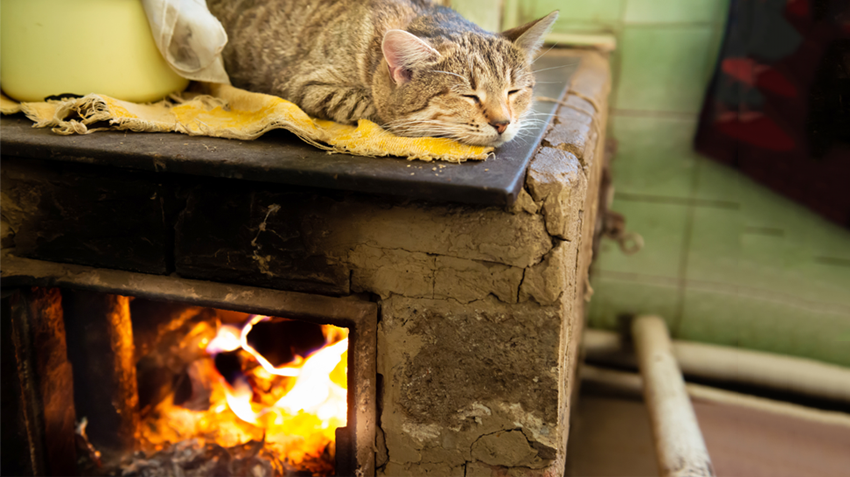Balconies and Windows
If you live in an apartment or have a balcony, ensure there are no gaps where your cat can squeeze through or fall. Install screens or netting to prevent accidents.
Stairs
If you have stairs, consider using baby gates to prevent your cat from climbing up or down unsupervised.
Garages and Basements
These areas often contain chemicals, tools, and other hazards. Keep them securely closed or install cat-proof barriers.
3. Provide Safe Entertainment
Cats need mental and physical stimulation. Make sure your home is equipped with safe entertainment options:
Scratching Posts
Cats need to scratch to keep their claws healthy. Provide sturdy scratching posts to satisfy this natural behavior and prevent them from damaging furniture.
Interactive Toys
Invest in interactive toys that can keep your cat engaged and mentally stimulated. Laser pointers, puzzle feeders, and feather wands are excellent choices.
4. Secure Food and Medications
Cats are known for their ability to open cabinets and containers. Keep their food, treats, and medications in secure containers to prevent them from ingesting something harmful.
If you have candles or a fireplace, keep a close eye on your cat around open flames. Cats are naturally drawn to flickering lights and can accidentally get burned.
Ensuring your house is cat-proof is essential for the safety and well-being of your feline friend. By identifying hazards, securing dangerous areas, providing safe entertainment, and taking necessary precautions, you can create a home that is not only comfortable for you but also a safe haven for your beloved cat. Remember that every cat is unique, so adapt these tips to your specific cat’s needs, and enjoy a worry-free and harmonious coexistence with your furry companion
